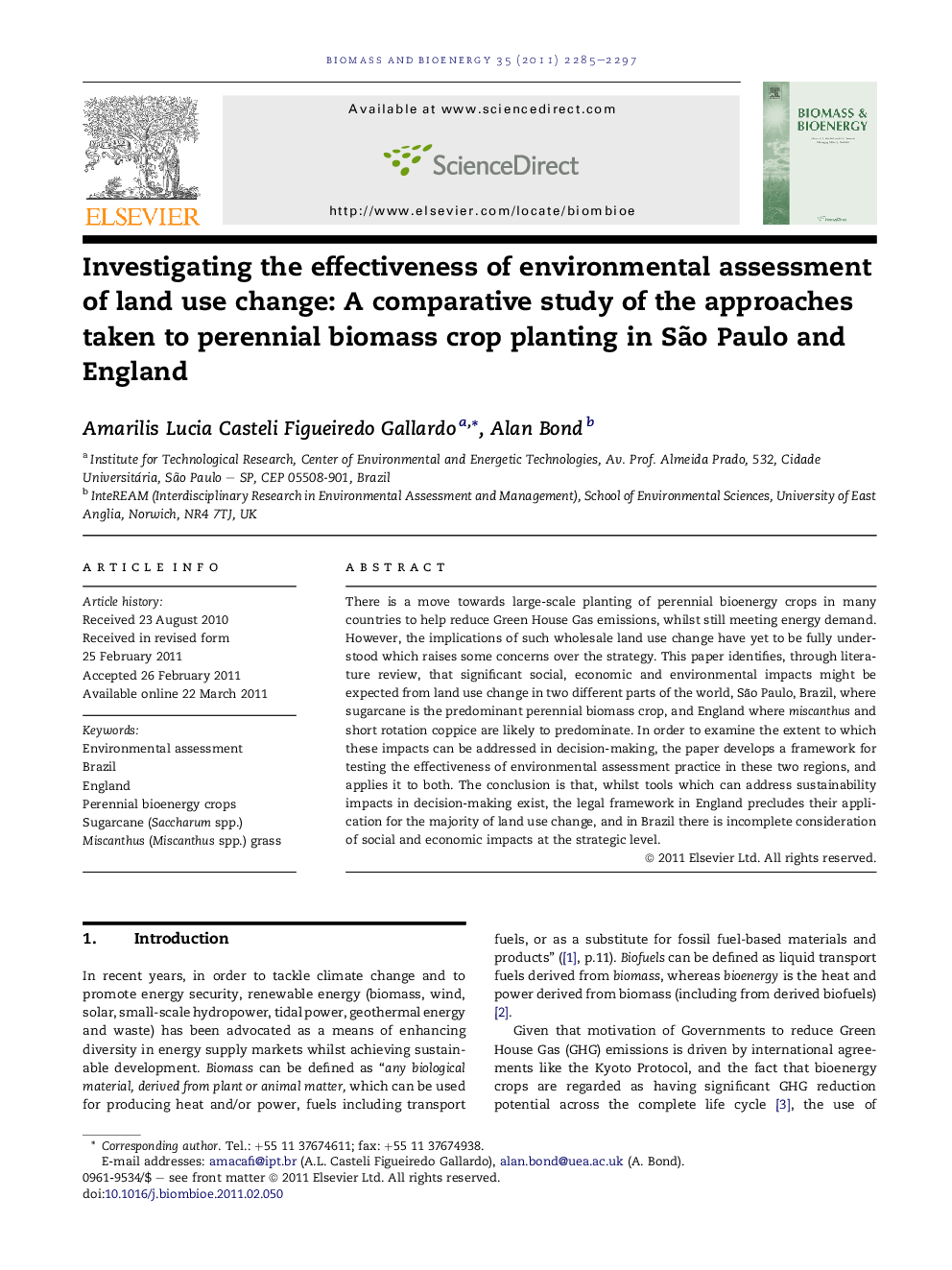| Article ID | Journal | Published Year | Pages | File Type |
|---|---|---|---|---|
| 677779 | Biomass and Bioenergy | 2011 | 13 Pages |
There is a move towards large-scale planting of perennial bioenergy crops in many countries to help reduce Green House Gas emissions, whilst still meeting energy demand. However, the implications of such wholesale land use change have yet to be fully understood which raises some concerns over the strategy. This paper identifies, through literature review, that significant social, economic and environmental impacts might be expected from land use change in two different parts of the world, São Paulo, Brazil, where sugarcane is the predominant perennial biomass crop, and England where miscanthus and short rotation coppice are likely to predominate. In order to examine the extent to which these impacts can be addressed in decision-making, the paper develops a framework for testing the effectiveness of environmental assessment practice in these two regions, and applies it to both. The conclusion is that, whilst tools which can address sustainability impacts in decision-making exist, the legal framework in England precludes their application for the majority of land use change, and in Brazil there is incomplete consideration of social and economic impacts at the strategic level.
► Brazil and England have been experimenting at different levels in the development of their bioenergy industries. We identify that significant social, economic and environmental impacts might be expected from land use change due to perennial bioenergy crop planting in these places. ► There have been growing concerns about the implications of land use change to bionergy crops. We develop a framework for testing the effectiveness of environmental assessment practice. We apply it in Brazil and England where perennial biomass crop planting is used to produce bioenergy. ► In Brazil and England there are tools which can address sustainability impacts in decision-making of bioenergy undertaking. However, the legal framework in England precludes their application for the majority of land use change, and in Brazil there is incomplete consideration of social and economic impacts at the strategic level.
